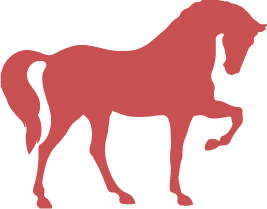4 TIPS TO OPTIMALLY PREPARE YOUR HORSE FOR COMPETITION AND HOT DAYS
Article Courtesy Cavalor The summer season is wonderful. Long evenings, plenty of competitions, and more time to enjoy horses and equestrian sport….
Free Delivery when you spend $49 or more. (Weight Limits Apply – view more)
 Dog
Dog

Shop Tuckers great range of dog food, health care & wellness products today. Delivered or Click & Collect.
 Cat
Cat

Tuckers has a great range of cat food, health care & litter products for your beloved cat. Shop now.
 Horse
Horse

Tuckers carry a huge range of food, supplements, health care, hoof care and grooming accessories. Shop now.
 Chook/Bird
Chook/Bird

Tuckers range of food, accessories & health care products will keep your chooks & birds happy and healthy.
 Small Animal
Small Animal

Shop food and health care products for your little mates @ Tuckers. Delivered or Click & Collect.
 Farm/Garden
Farm/Garden

Tuckers carry a wide range of sheep & cattle products, plus everything you’ll need around the farm or garden.
 Dog
Dog

Shop Tuckers great range of dog food, health care & wellness products today. Delivered or Click & Collect.
 Cat
Cat

Tuckers has a great range of cat food, health care & litter products for your beloved cat. Shop now.
 Horse
Horse

Tuckers carry a huge range of food, supplements, health care, hoof care and grooming accessories. Shop now.
 Chook/Bird
Chook/Bird

Tuckers range of food, accessories & health care products will keep your chooks & birds happy and healthy.
 Small Animal
Small Animal

Shop food and health care products for your little mates @ Tuckers. Delivered or Click & Collect.
 Farm/Garden
Farm/Garden

Tuckers carry a wide range of sheep & cattle products, plus everything you’ll need around the farm or garden.

By Kentucky Equine Research Staff
Horse owners usually soak hay for one of two reasons, to reduce allergens for horses with respiratory disease or to draw out sugar to make it suitable for soluble carbohydrate-sensitive horses. Soaking changes the nutritional profile of forages, most notably in carbohydrate and mineral content.
Nonstructural carbohydrates. For horses with metabolic challenges, the best way to determine the suitability of any hay is through laboratory testing for nonstructural carbohydrates (NSC). “If the hay is already 12% NSC or lower, there could be no need to soak it. For hays that test higher than 12%, soaking remains a valuable management tool for metabolic horses,” said Kathleen Crandell, Ph.D., a nutritionist for Kentucky Equine Research.
“Submerging hay in water for just 15 minutes can remove some sugar, usually enough to bring NSC within the acceptable 10-12% range,” said Crandell. Soaking grass hay for 30 to 60 minutes with warm water removed more NSC than soaking the same amount of time with cold water.*
For alfalfa hay, soaking for 15 minutes showed some NSC losses, and water temperature affected NSC losses, too. The NSC of alfalfa hay is, however, usually lower than the recommended 10-12% NSC for horses with metabolic diseases, so soaking alfalfa hay is generally not beneficial, Crandell explained. Before feeding alfalfa hay to a metabolic horse, be sure to have it tested through a reputable laboratory.
Metabolic horses are often sensitive to a specific sugar in cool-season grasses called fructan. In hays made from these cool-season grasses, such as perennial ryegrass, fructans may be high. Prolonged soaking, for at least 12 hours, reduced fructan in cool-season hays.** Researchers found that fructan loss is greater in warm water during the first 15-30 minutes of submersion. Given the management challenges of soaking hay for extended periods, it might be best to avoid hay made from high fructan cool-season grasses for metabolic horses.
Minerals. Soaking affects the mineral content of hay. Research has focused on calcium, phosphorus, potassium, and magnesium levels in soaked hays.***
Calcium losses have not been noted when mature hays are soaked, but the calcium in immature hay—harvested in the vegetative stage—is more unstable, and some calcium can be lost with extended soaking.
Phosphorus is less stable in hay and losses are correlated with the length of time the hay is soaked. “Soaking for 15-60 minutes may result in losses of 25-35%, but soaking 12 hours can result in 45-65% losses, which can affect the calcium-to-phosphorus ratio enough to warrant phosphorus supplementation,” said Crandell.
Potassium losses are perhaps the most dramatic with soaking. Losses can range from 30-65% with just 30-60 minutes of soaking, and 12-hour soaking can result in 70-80% losses. Potassium losses are greater when hay is submerged in warm water compared to cold. Potassium is typically high in forages, exceeding the requirement of most horses, so the loss is not detrimental to the potassium intake of the horse. In fact, these losses may be advantageous for horses with hyperkalemic periodic paralysis (HYPP), as they benefit from reduced potassium intake.
Magnesium losses are correlated with the amount of time the hay is soaked, with losses of 33-45% after 12 hours of soaking.
Protein. Soaking does not affect protein content of hay significantly.***
Horses that consume diets composed largely or entirely of forage should be fed a vitamin and mineral supplement to ensure overall health and well-being. Easy keepers do well with Micro-Max, a micronutrient product intended for mature horses. Australian horse owners should look for Gold Pellet, Nutrequin, or Perform. These products would compensate for any mineral losses caused by soaking.
*Martinson KL, Jung H, Hathaway M, Sheaffer C. The effect of soaking on carbohydrate removal and dry matter loss in orchardgrass and alfalfa hays. Journal of Equine Veterinary Science (2012) 32:332-338
**Martinson KL, Jung H, Hathaway M, Sheaffer C. The effect of soaking hay on dry matter loss and fructan removal. Journal of Equine Veterinary Science (2011) 31: 278-279
***Martinson KL, Hathaway M, Jung H, Sheaffer C. The effect of soaking on protein and mineral loss in orchardgrass and alfalfa hay. Journal of Equine Veterinary Science (2012) 32:776-782
Entire range - quick and secure delivery
Buy securely online and pickup at your local store
Call your local store and come on down to pickup
© 2026 Tuckers Pet & Produce.
